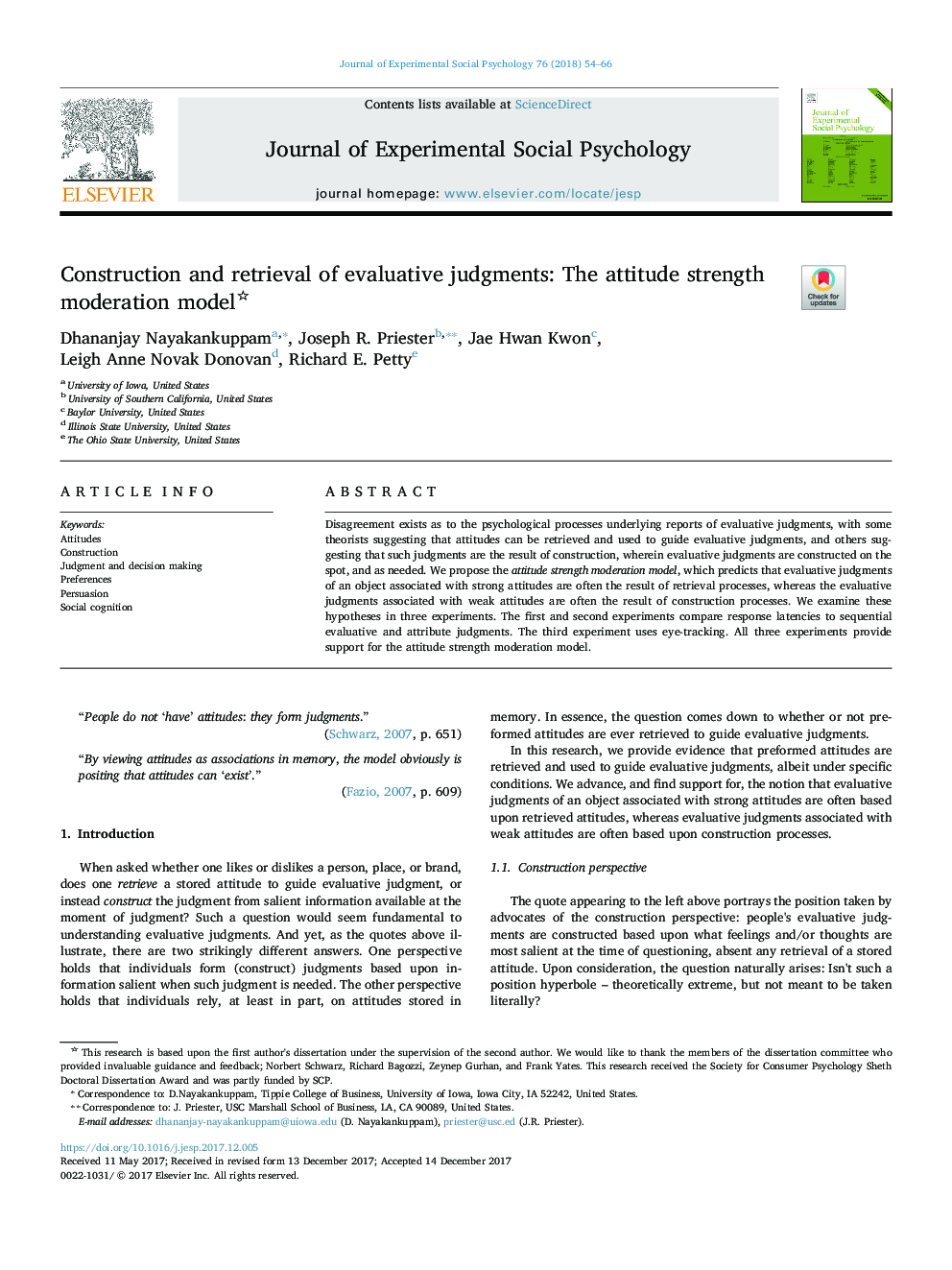| Article ID | Journal | Published Year | Pages | File Type |
|---|---|---|---|---|
| 7324057 | Journal of Experimental Social Psychology | 2018 | 13 Pages |
Abstract
Disagreement exists as to the psychological processes underlying reports of evaluative judgments, with some theorists suggesting that attitudes can be retrieved and used to guide evaluative judgments, and others suggesting that such judgments are the result of construction, wherein evaluative judgments are constructed on the spot, and as needed. We propose the attitude strength moderation model, which predicts that evaluative judgments of an object associated with strong attitudes are often the result of retrieval processes, whereas the evaluative judgments associated with weak attitudes are often the result of construction processes. We examine these hypotheses in three experiments. The first and second experiments compare response latencies to sequential evaluative and attribute judgments. The third experiment uses eye-tracking. All three experiments provide support for the attitude strength moderation model.
Related Topics
Life Sciences
Neuroscience
Behavioral Neuroscience
Authors
Dhananjay Nayakankuppam, Joseph R. Priester, Jae Hwan Kwon, Leigh Anne Novak Donovan, Richard E. Petty,
